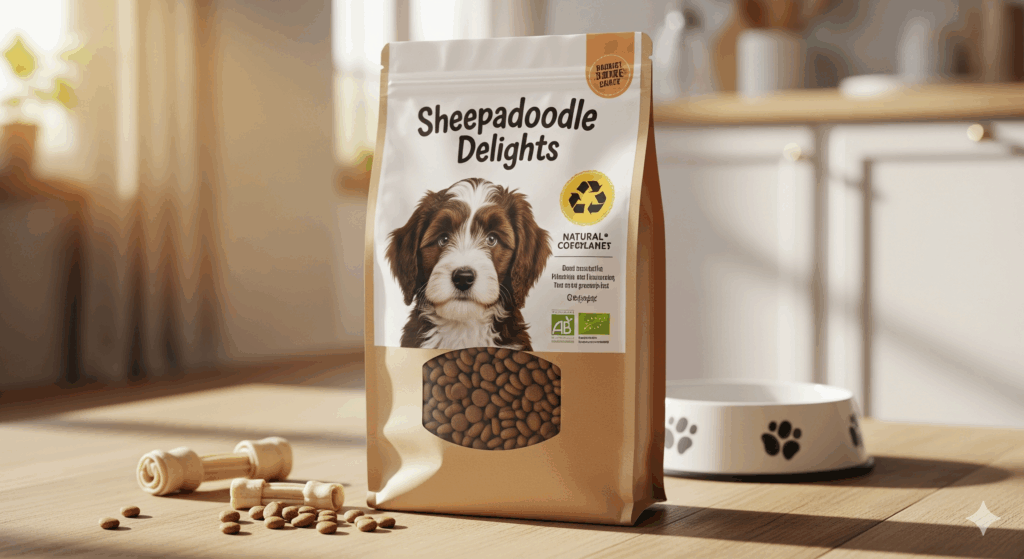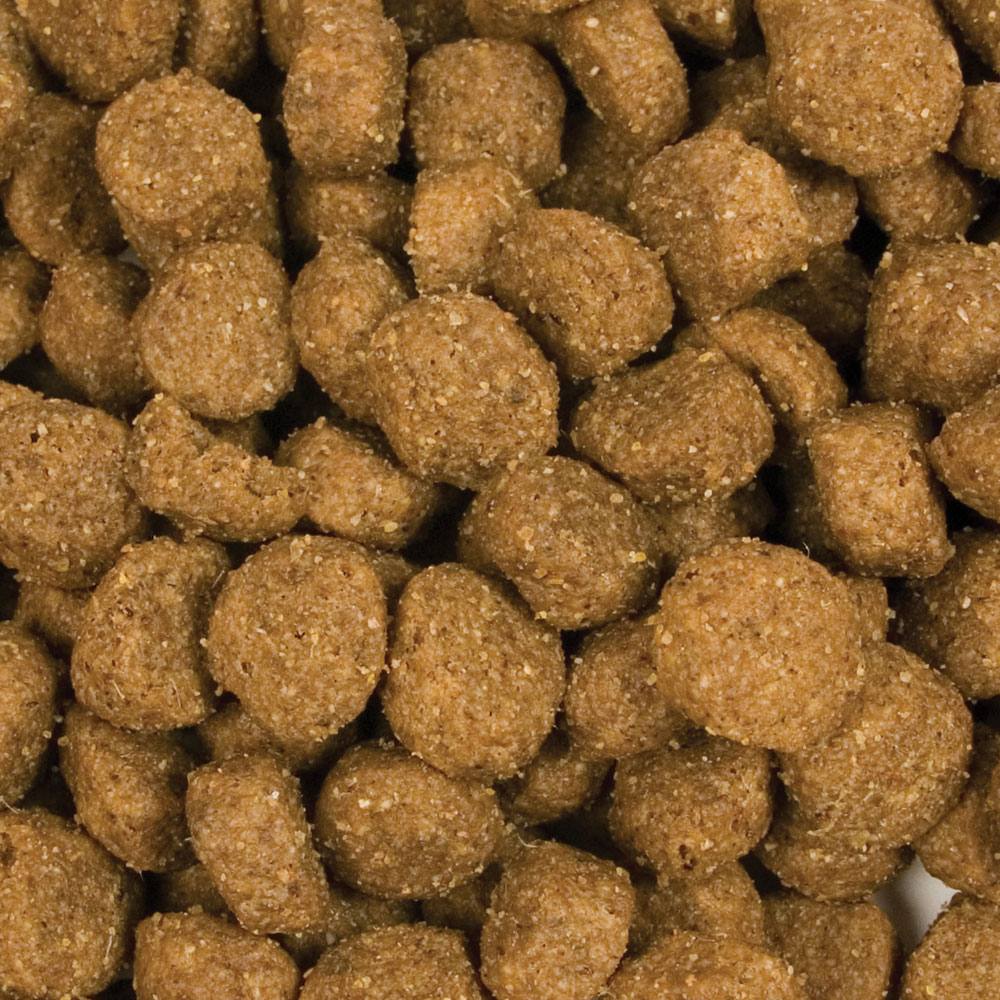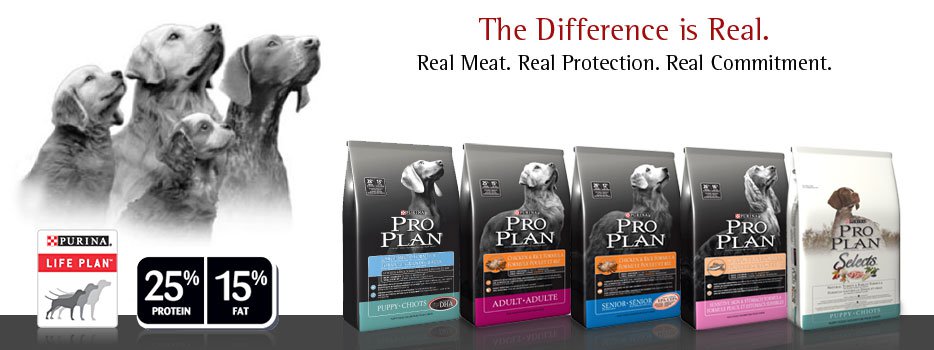
Introduction
Sheepadoodles are one of the most popular designer breeds in the U.S. These adorable dogs are a cross between the Old English Sheepdog and the Poodle, combining intelligence, energy, and a loving personality. But when it comes to raising a Sheepadoodle puppy, nutrition is everything. Choosing the best puppy food for Sheepadoodle isn’t just about taste—it’s about supporting healthy growth, strong bones, a shiny coat, and long-term well-being.
See also:
In this guide, we’ll break down everything you need to know about Sheepadoodle puppy nutrition, review the top puppy food brands for 2025, and give you practical feeding tips you can trust.
Understanding the Sheepadoodle Puppy
Before we dive into food options, let’s understand the breed. Sheepadoodles typically weigh between 50–80 lbs as adults, depending on whether they’re standard or mini. As puppies, they go through rapid growth spurts and need balanced nutrition to avoid health issues like joint problems or obesity.
Key Breed Traits That Impact Nutrition:
- Rapid growth: Large-breed puppies need carefully balanced calcium and phosphorus to protect bone and joint development.
- High energy: These pups are playful and active, which means they need higher protein and fat for fuel.
- Potential sensitivities: Like Poodles, Sheepadoodles can be prone to food allergies (especially chicken, wheat, or soy).
Key Nutritional Requirements for Sheepadoodle Puppies
When choosing the best puppy food for Sheepadoodle, look for:
- High-quality protein (chicken, lamb, fish, or beef) for muscle development.
- Healthy fats (omega-3 and omega-6 fatty acids) for skin, coat, and brain development.
- DHA and EPA (important omega-3s) for cognitive growth and vision.
- Balanced calcium & phosphorus to protect bones and joints.
- No fillers or artificial additives, which can cause digestive issues.
Best Puppy Food for Sheepadoodle: Top Picks for 2025
After reviewing dozens of puppy foods, here are the top recommendations for Sheepadoodles in the U.S. this year:
1. Purina Pro Plan Large Breed Puppy Food
- Why it’s great: Developed with vets, this formula supports large-breed growth with controlled calcium and glucosamine for joints.
- Pros: Affordable, widely available, DHA-rich.
- Cons: Contains grains (may not suit sensitive pups).
2. Blue Buffalo Life Protection Puppy Formula
- Why it’s great: Real meat as the first ingredient, with LifeSource Bits packed with antioxidants.
- Pros: No by-products or artificial flavors.
- Cons: Some picky eaters avoid it.
3. Hill’s Science Diet Large Breed Puppy
- Why it’s great: Backed by decades of research, balanced nutrition for large puppies.
- Pros: Supports bone growth, high digestibility.
- Cons: Pricier than average.
4. Orijen Puppy Large
- Why it’s great: Biologically appropriate with 85% animal ingredients, grain-free.
- Pros: High protein, whole-prey ingredients.
- Cons: Expensive and rich—may cause loose stools if not transitioned slowly.
5. Wellness Complete Health Large Breed Puppy
- Why it’s great: Made with deboned chicken and salmon, fortified with DHA.
- Pros: All-natural, supports brain development.
- Cons: Slightly higher cost.
6. Royal Canin Large Puppy
- Why it’s great: Specifically formulated for large breeds with optimal mineral balance.
- Pros: Trusted by vets, excellent for digestion.
- Cons: Uses some by-products.
7. Nutro Ultra Puppy
- Why it’s great: A trio of proteins (chicken, lamb, salmon) plus superfoods.
- Pros: Nutrient-dense, free from artificial preservatives.
- Cons: Can be hard to find in smaller stores.
8. The Farmer’s Dog (Fresh Food)
- Why it’s great: Human-grade, fresh meals delivered to your door.
- Pros: Personalized to your pup, minimal processing.
- Cons: Subscription-based, more expensive than kibble.
Homemade & Fresh Food Options
Some owners prefer homemade or fresh delivery services. Brands like Ollie, Nom Nom, and The Farmer’s Dog offer balanced, vet-formulated meals delivered fresh. These options are excellent for picky eaters and pups with sensitivities, but you must ensure they meet AAFCO standards.
Important: Never feed a homemade diet without veterinary guidance—imbalanced diets can cause serious health issues.
How to Transition Your Sheepadoodle Puppy to New Food
Switching foods too quickly can upset your pup’s stomach. Follow this 7-day transition:
- Day 1–2: 75% old food + 25% new food.
- Day 3–4: 50% old food + 50% new food.
- Day 5–6: 25% old food + 75% new food.
- Day 7: 100% new food.
Feeding Schedule & Portion Guide
General Guidelines:
- 8–12 weeks: 4 meals/day.
- 3–6 months: 3 meals/day.
- 6–12 months: 2 meals/day.
- Over 12 months: Transition to adult food.
Always adjust portions based on weight, activity level, and vet recommendations. Overfeeding can lead to obesity, which stresses growing joints.
Common Feeding Mistakes to Avoid
- Free-feeding: Leads to overeating and obesity.
- Switching foods too fast: Causes diarrhea.
- Ignoring allergies: Symptoms like itching, ear infections, or excessive gas may signal food sensitivities.
- Over-relying on treats: Keep treats under 10% of daily calories.
FAQ: Best Puppy Food for Sheepadoodle
Q1: Can Sheepadoodle puppies eat grain-free food?
Yes, but consult your vet. Grain-free diets are controversial due to possible links to heart disease.
Q2: Should I give supplements?
Not unless prescribed. Quality puppy foods already include essential nutrients.
Q3: Wet vs dry food—which is better?
Dry food is more convenient and better for dental health, while wet food is more palatable. A mix of both works well.
Q4: How long should my Sheepadoodle stay on puppy food?
Typically until 12–18 months, depending on size and growth.
Conclusion
Choosing the best puppy food for Sheepadoodle means finding a diet that supports growth, energy, and overall health. Options like Purina Pro Plan, Orijen, and The Farmer’s Dog stand out in 2025, but the best choice depends on your puppy’s needs and sensitivities. Always transition foods slowly, monitor your pup’s weight and energy, and check with your vet for personalized advice.
Your Sheepadoodle puppy deserves the best start in life—feed them right, and you’ll have a healthy, happy companion for years to come.
 Best Dog Food for Dachshunds
Best Dog Food for Dachshunds True Story: Our Parvo Puppy Is A Survivor
True Story: Our Parvo Puppy Is A Survivor FDA Recall Alert: Eukanuba Dog Foods Review
FDA Recall Alert: Eukanuba Dog Foods Review Purina Pro Plan Dog Foods Review
Purina Pro Plan Dog Foods Review The 5 Best Dog Grooming Shears 2019
The 5 Best Dog Grooming Shears 2019
Leave a Reply